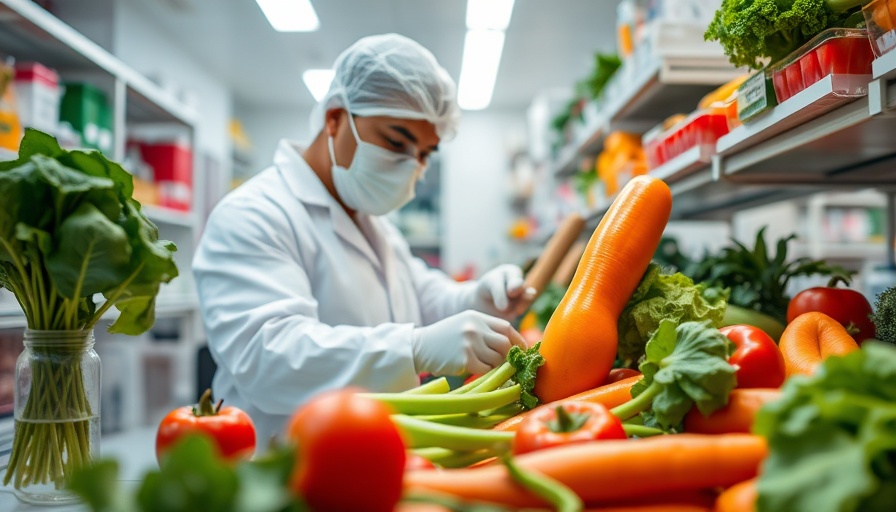
The Impact of Tariffs on Lesotho's Economy
In a significant development for the small southern African nation of Lesotho, the impact of rising tariffs imposed by the United States has led to the unfortunate shutdown of a factory that used to produce Trump-branded clothing. The factory, situated in the heart of Lesotho's textile sector, has been caught in a web of economic challenges exacerbated by political decisions thousands of miles away.
In the video "Lesotho factory that made Trump cloths face shutdown after tariffs," the discussion dives into the profound economic consequences of U.S. tariffs on small nations like Lesotho, prompting deeper analysis of the situation.
Historical Context and Background
Lesotho, often referred to as the "Kingdom in the Sky," is predominantly known for its textile manufacturing industry, which employs over 30,000 workers. This industry, concentrated in a few urban areas, forms the backbone of Lesotho's economy. However, the high dependency on exports, particularly to the US market, makes it vulnerable to international trade shifts like tariffs. President Trump's recent 50% tariff on clothing exports has instigated a series of economic tremors within this fragile economic landscape.
A Closer Look at Tariff Implications
The ongoing tension surrounding trade policy has raised questions about the validity of Trump's rationale for introducing tariffs. While he cited a trade imbalance as the primary reason, many analysts believe that these tariffs may not be the correct approach to rectify such disparities. Instead, they could deepen economic challenges for tiny economies like Lesotho, which already struggle to compete on a global scale.
The Human Cost of Economic Policies
The personal stories of those affected by the factory's closure illustrate the real human cost of such decisions. One worker lamented, "I'm the breadwinner in my family. I have two children currently in school... Life is difficult." This face of adversity reflects a broader narrative of desperation as families grapple with the loss of income and job security in an already precarious economic environment.
Diverse Perspectives: Understanding the Trade Dynamics
While the U.S. administration builds its case for tariffs based on economic disparities, Lesotho's government contends that such policies will only widen their trade deficit. The Sotho government believes that tariffs will hinder their ability to engage in trade efficiently, exacerbating the economic divide rather than bridging it.
Future Predictions: Opportunities and Challenges Ahead
As Trump prepares to announce new tariff rates, stakeholders in Lesotho and other affected exporting nations hold their breath, uncertain of their future. The potential for retaliatory tariffs by the affected countries could further complicate trade dynamics, possibly leading to a downward spiral of economic hardship and reduced global cooperation.
Actionable Insights for Local Leaders
Local government officials and business leaders in Lesotho must explore alternative avenues to counteract the detrimental effects of these tariffs. Building domestic industries capable of self-sufficiency, fostering alternative partnerships, and empowering local entrepreneurs may present viable pathways for economic resilience. Additionally, seeking diplomatic dialogue with U.S. officials to negotiate terms that favor equitable trade could be a crucial strategy moving forward.
The Business Landscape of Lesotho: A Call to Action
As the closure of the Trump clothing factory unveils the fragility of Lesotho's economic landscape, it also transcends beyond economic statistics—this situation calls for recognition of the resilience of the African spirit. Government, businesses, and communities must collaborate, leveraging their strengths to innovate, protect jobs, and create new opportunities. The time for action is now.
In conclusion, unfolding events like those discussed in the video "Lesotho factory that made Trump cloths face shutdown after tariffs" reveal the intricate links between local economies and global trade policies. We need to engage with these narratives — understanding their implications not just for Lesotho but for economies worldwide.
 Add Row
Add Row  Add
Add 




Write A Comment